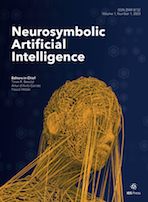Submitted by Sanaz Saki Norouzi on
Call for Papers: Special Issue on Neuro-Symbolic AI and Domain Specific Conceptual Modelling
The creation of Intelligent Information Systems (IIS) requires familiarity with the application domain and IT requirements. An early inclusion of domain experts in the engineering process is beneficial as it promotes high quality. Such an early inclusion is, however, challenging because stakeholders from business and IT have complementary skills and speak different “languages”: one more technical and one more business oriented. Domain-Specific Conceptual Modeling (DSCM) can tackle this challenge as it supports business and IT alignment. DSCM is an established approach for the conceptual representation, design, implementation, and analysis of information systems. Graphical notation of enterprise models fosters human interpretability, hence supporting communication and decision-making involving stakeholders from the application domain, IT and AI. The convergence of Neuro-Symbolic AI and Domain-Specific Conceptual Modelling promises to deliver high value in the creation of Intelligent Information Systems: for example, whilst neural networks can recognize patterns in large amounts of data, knowledge-based systems contain domain knowledge and enable logical reasoning, enforcement of constraints, and explainability of conclusions. The goal of this Special Issue is to bring together a wide set of ideas from researchers and practitioners in Machine Learning, Knowledge Representation and Reasoning, and Domain-Specific Conceptual Modelling, on how combining these three fields, with their methods and technologies, can contribute to IIS engineering.
Topics of Interest
Topics of interest include (but not limited to):
- Neuro-Symbolic methods and technologies in and for Enterprise Architecture
- Neuro-Symbolic methods and technologies for Business Process Management
- Neuro-Symbolic methods and technologies combined with graphical models for ontology learning
- Hybrid recommender systems
- Machine Learning, Deep Learning and Neural Networks and Human-in-the-Loop Systems
- Machine Learning for Knowledge Graphs and/or ontology-based models
- Machine learning in ontology-based Case-Based Reasoning
- Low code approaches for, e.g., Knowledge Graphs, Machine Learning, knowledge engineering, Hybrid AI engineering
- Visual conceptual models for, e.g., ontology constraints, knowledge graph embeddings, machine learning, knowledge engineering
- Knowledge Engineering, Representation and Reasoning and Visual Conceptual Models
- Ontologies and graphical models for case-based reasoning
- Semantic technologies for actionable enterprise models
- Combining ontology-based business process and data-driven approaches
- Enterprise AI
- Human-in-the-Loop Systems
This Special Issue is set to include a selection of the extended papers from the 2nd International Workshop on Hybrid Artificial Intelligence and Enterprise Modeling for Intelligent Information Systems (HybridAIMS 2024), to be held in Limassol, Cyprus, on June 3rd, 2024, in conjunction with the 36th International Conference on Advanced Information Systems Engineering CAiSE 2024. Although, there is no requirement to submit a paper to the workshop for consideration in the Special Issue, Guest Editors are encouraging interested authors to consider such option.
Deadline
September 20, 2024. Paper submitted prior to the deadline will be processed as soon as they
are received.
Guest Editors
- Alessandro Oltramari, Bosch Center for Artificial Intelligence, USA
- Emanuele Laurenzi, FHNW University of Applied Sciences and Arts Northwestern Switzerland.
- Paulo Shakarian, Arizona State University, USA
Contact email for the guest editors: neuro-symbolicai@hybridaims.com
Guest Editorial Board
(to be announced)
Author Guidelines
We invite full papers, dataset descriptions, application reports and reports on tools and systems. Submissions must be original and should not have been published previously or be under consideration for publication while being evaluated for this special issue. Authors can extend previously published conference or workshop papers - see the submission guidelines at https://neurosymbolic-ai-journal.com/content/author-guidelines for details.
Submissions shall be made through the journal website at https://neurosymbolic-ai-journal.com/. Prospective authors must take notice of the submission guidelines posted at https://neurosymbolic-ai-journal.com/content/author-guidelines.
Note that you need to request an account on the website for submitting a paper. Please indicate in the cover letter that it is for the "Special Issue on Neurosymbolic AI and Domain Specific Conceptual Modeling". All manuscripts will be reviewed based on the journal's open and transparent review policy and will be made available online during the review process.
